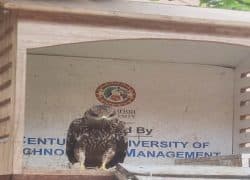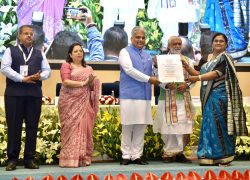Microbiology, a subfield of biology concerned with the study of microorganisms, is related to microorganisms. As a consequence, there are many different avenues for research into this subject and career development. The new generation of microbiologists utilizes the roles of beneficial microbes in a variety of fields, including environmental science, food production, medicine, and basic research, as opposed to restricting themselves to the diagnosis and treatment of infectious diseases.
Historically a microbiologist’s career was confined to a lab setting. However, as our knowledge of microbial effects has grown, so have the career options in this domain. A professor, a Pollution Control specialist, a food safety officer, a forensic scientist, or a bio-safety officer – these are just a few of the career options available in this field today because of its diverse occupational prospects. The following career options are currently available to students in this field:
- Researcher
This is about investigating and learning new things, in order to apply them to problems in the real world. Utilizing different aspects of microorganisms for research involves:
- Safety of food
- Reduction and management of pollution
- Disease diagnosis and treatment for the protection of health.
Microbiologists can work in a variety of career fields like universities, colleges, government agencies, non-profit organizations and private companies, because the tasks include:
- Writing grant proposals,
- Designing experiments,
- Analyzing data, and
- Publishing research findings in scientific journals and sharing the knowledge in conferences.
- Teaching
While acting in the capacity of educators, professors and laboratory instructors may play a role in this field’s teaching.
- Diagnostics
This involves working in public health labs, hospitals, private veterinary or medical diagnostic labs, and in private businesses as clinical laboratory professionals.
- Bio-safety
Personnel in the field of bio-safety hold positions in a variety of settings, including educational institutions, for-profit businesses, healthcare facilities, and governmental organizations.
- Hybrid Career Options
Microbiologists occasionally choose hybrid careers by fusing their scientific knowledge with abilities and interests in other areas, such as:
- Intellectual (Life Sciences) Property Analysts
- Business Analysts
- Medical Writers
- Medical Educators
Microbiologists work in a wide range of sectors including universities, hospitals, and government as well as non- government organizations, business, healthcare, agriculture, nanotechnology and chemical sector businesses, due to the numerous career opportunities in this domain.
Courses in Microbiology
There are numerous courses available at various educational levels, from certificate level to doctorate level. After class 12, a variety of well-liked courses are offered. The majority of the courses are offered online and last anywhere from a few hours to a few months. Certificate programs are typically appropriate for individuals who want to quickly learn the skills of a microbiologist. Courses in the diploma and postgraduate diploma programs can only be distinguished by eligibility. While students can only enroll in diploma programs after completing the 12th grade, PG Diploma programs are available after graduating.
Admission is based solely on merit for all diploma and postgraduate diploma programs, and applicants must be from the science field. In diploma programs, grades from the 12th grade are taken into account. However, in PG Diploma programs, graduation marks are taken into account. The majority of students choose bachelor’s degree programs, and admission is solely based on merit.
Know the admission details of B.Sc Clinical Microbiology Course in Bhubaneswar.








